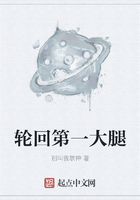Clement Lindsay was a little surprised by his invitation. He had, however, been made a lion of several times of late, and was very willing to amuse himself once in a while with a peep into the great world.
It was but an empty show to him at best, for his lot was cast, and he expected to lead a quiet domestic life after his student days were over.
Master Byles Gridley had known what society was in his earlier time, and understood very well that all a gentleman of his age had to do was to dress himself in his usual plain way, only taking a little more care in his arrangements than was needed in the latitude of Oxbow Village. But Gifted must be looked after, that he should not provoke the unamiable comments of the city youth by any defect or extravagance of costume. The young gentleman had bought a light sky-blue neckerchief, and a very large breast-pin containing a gem which he was assured by the vender was a genuine stone. He considered that both these would be eminently effective articles of dress, and Mr.
Gridley had some trouble to convince him that a white tie and plain shirt-buttons would be more fitted to the occasion.
On the morning of the day of the great party Mr. William Murray Bradshaw received a brief telegram, which seemed to cause him great emotion, as he changed color, uttered a forcible exclamation, and began walking up and down his room in a very nervous kind of way. It was a foreshadowing of a certain event now pretty sure to happen.
Whatever bearing this telegram may have had upon his plans, he made up his mind that he would contrive an opportunity somehow that very evening to propose himself as a suitor to Myrtle Hazard. He could not say that he felt as absolutely certain of getting the right answer as he had felt at some previous periods. Myrtle knew her price, he said to himself, a great deal better than when she was a ****** country girl. The flatteries with which she had been surrounded, and the effect of all the new appliances of beauty, which had set her off so that she could not help seeing her own attractions, rendered her harder to please and to satisfy. A little experience in society teaches a young girl the arts and the phrases which all the Lotharios have in common. Murray Bradshaw was ready to land his fish now, but he was not quite sure that she was yet hooked, and he had a feeling that by this time she knew every fly in his book. However, as he had made up his mind not to wait another day, he addressed himself to the trial before him with a determination to succeed, if any means at his command would insure success. He arrayed himself with faultless elegance: nothing must be neglected on such an occasion. He went forth firm and grave as a general going into a battle where all is to be lost or won. He entered the blazing saloon with the unfailing smile upon his lips, to which he set them as he set his watch to a particular hour and minute.
The rooms were pretty well filled when he arrived and made his bow before the blazing, rustling, glistening, waving, blushing appearance under which palpitated, with the pleasing excitement of the magic scene over which its owner presided, the heart of Mrs. Clymer Ketchum. He turned to Myrtle Hazard, and if he had ever doubted which way his inclinations led him, he could doubt no longer. How much dress and how much light can a woman bear? That is the way to measure her beauty. A plain girl in a ****** dress, if she has only a pleasant voice, may seem almost a beauty in the rosy twilight. The nearer she comes to being handsome, the more ornament she will bear, and the more she may defy the sunshine or the chandelier.
Murray Bradshaw was fairly dazzled with the brilliant effect of Myrtle in full dress. He did not know before what handsome arms she had,--Judith Pride's famous arms--which the high-colored young men in top-boots used to swear were the handsomest pair in New England--right over again. He did not know before with what defiant effect she would light up, standing as she did directly under a huge lustre, in full flower of flame, like a burning azalea. He was not a man who intended to let his sentiments carry him away from the serious interests of his future, yet, as he looked upon Myrtle Hazard, his heart gave one throb which made him feel in every pulse that this way a woman who in her own right, simply as a woman, could challenge the homage of the proudest young man of her time. He hardly knew till this moment how much of passion mingled with other and calmer motives of admiration. He could say I love you as truly as such a man could ever speak these words, meaning that he admired her, that he was attracted to her, that he should be proud of her as his wife, that he should value himself always as the proprietor of so rare a person, that no appendage to his existence would take so high a place in his thoughts. This implied also, what is of great consequence to a young woman's happiness in the married state, that she would be treated with uniform politeness, with satisfactory evidences of affection, and with a degree of confidence quite equal to what a reasonable woman should expect from a very superior man, her husband.
If Myrtle could have looked through the window in the breast against which only authors are privileged to flatten their features, it is for the reader to judge how far the programme would have satisfied her.















